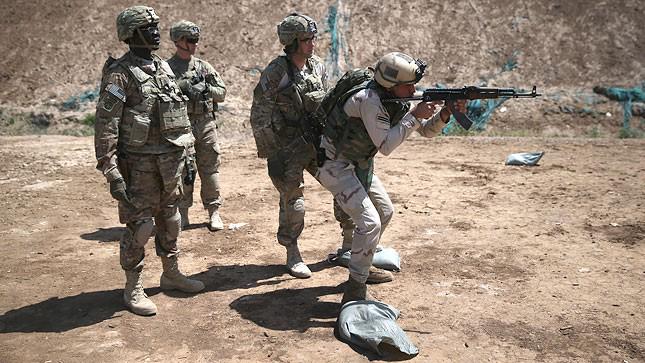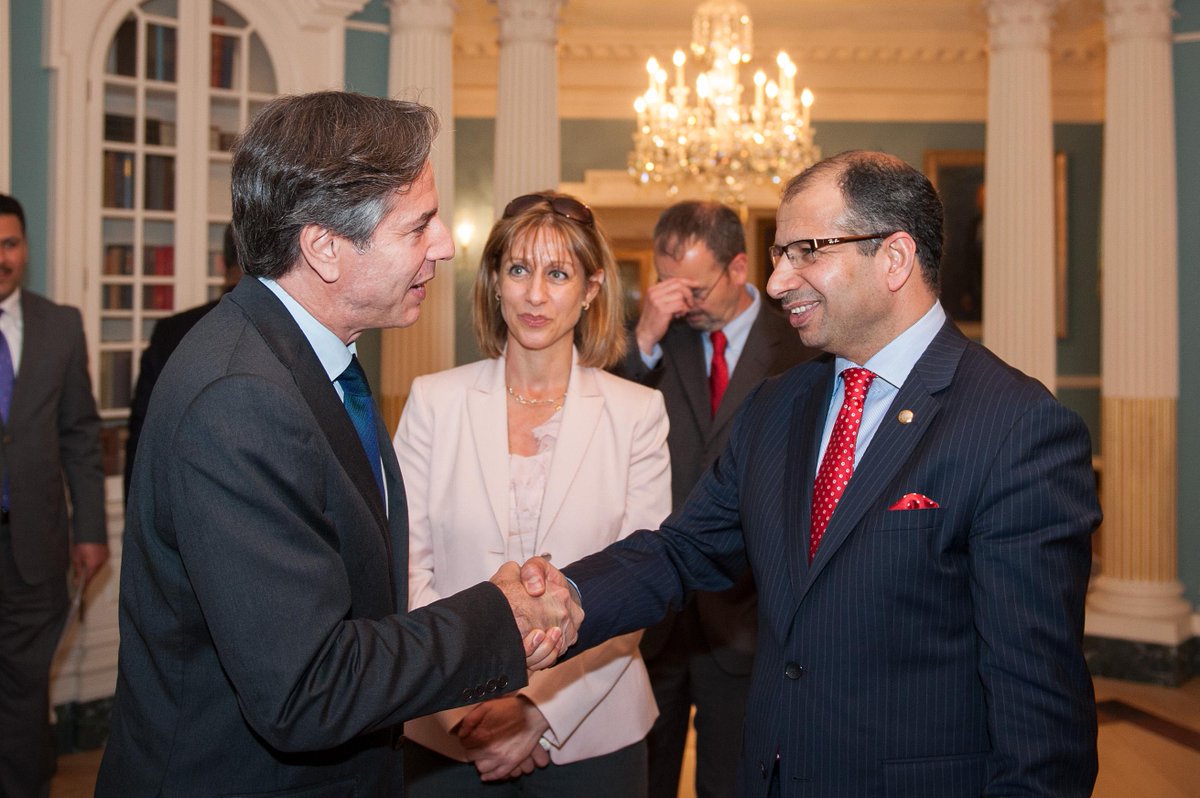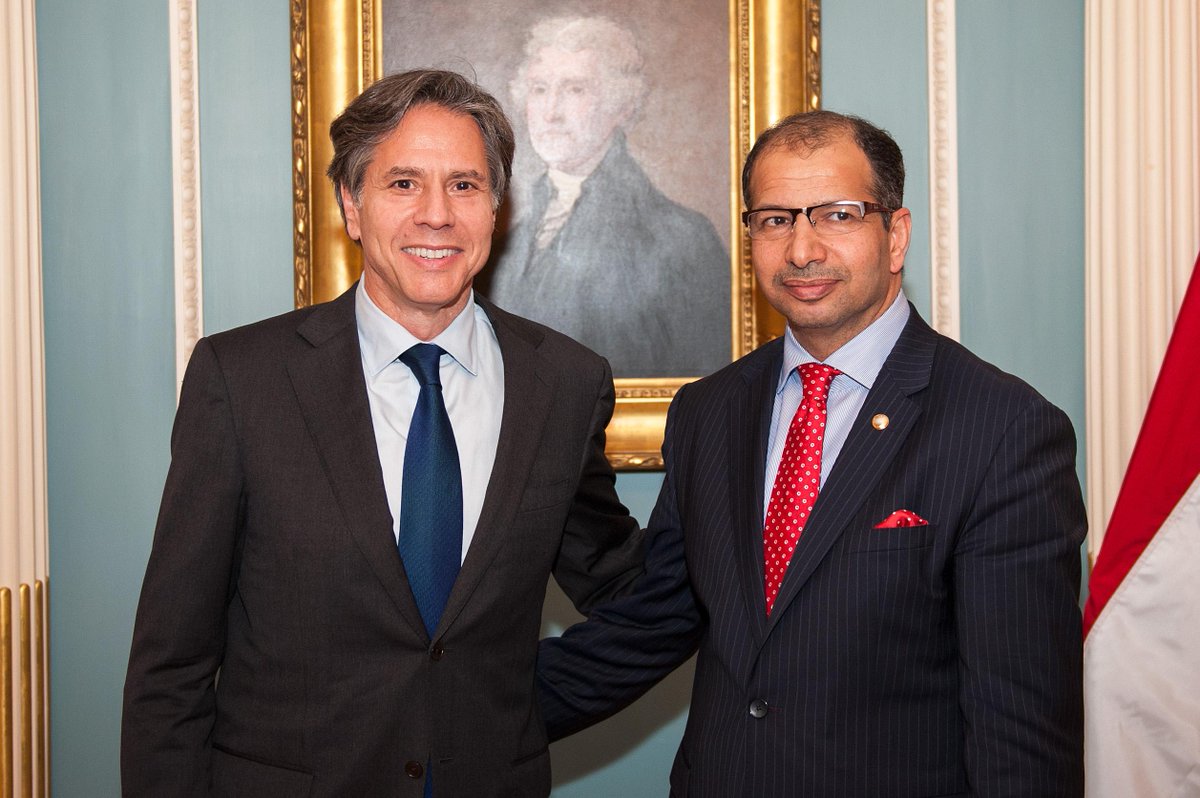I love my three kids.
But sometimes, the state of the world makes me wonder if I did them any favors bringing them into this world?
Mike Head (WSWS) reports:
Eight hundred years since the English Magna Carta, which first enshrined the principle of freedom from being arbitrarily stripped of basic rights by an absolute monarch, the world’s major capitalist governments are moving to overturn the most fundamental political right, that of citizenship.
Whatever its historical limitations, the “Great Charter” agreed by King John at Runnymede on June 15, 1215, asserted a core right. Clause 39 proclaimed that “No freeman shall be taken or imprisoned or stripped of his rights or possessions, or be outlawed or exiled, or deprived of his standing in any way” except by the judgment of his peers or the “law of the land,” that is, not by royal command.
Today, so-called “democratic” governments are abrogating the very right not to be “outlawed or exiled.” Citizenship is the bedrock of every essential democratic and civil right. Without it, no other political right exists, including to vote, reside, travel and not be detained without trial.
Last month, the Australian government announced its intention to revoke citizenships, even of native-born citizens, solely on the basis of allegations by a minister of engaging in or “counselling” supposed terrorist-related activity. This would be done by administrative fiat—today’s equivalent of the royal prerogative—without any conviction in a court of law.
Stripping citizenship?
It's disgusting for any reason.
I can't believe the slope we've fallen down.
"Iraq snapshot" (The Common Ills):
Saturday, June 13, 2015. Chaos and violence continue, the State Dept tries to spin the meaning of bases in Iraq, Barack's legal rationale is dubbed 'thin and shallow,' Amy Goodman sells war, BBC News never sees torture or forced confessions -- only guilty people (who've not yet been convicted of any crime), and much more.
Earlier this week, as Barack Obama again sent more US troops into Iraq, The Nation's Katrina vanden Heuvel offered this:
I knew when it went up because a friend at The Nation immediately called and said it had to be -- had to be -- included in a snapshot.
It was, the friend insisted, a statement.
I scoffed at the notion but said we'd note it at some point if there was time.
Today, we make time.
As weak as Katrina's Tweet ('statement') is, she now stands like a giant for what she Tweeted.
Why?
All things fake-ass eventually lead to Amy Goodman -- the Porter Goss of the '10s.
Thursday on the weak ass and fake ass Democracy Now!, Goody Whore was pimping war.
She brought on a ridiculous guest -- the Guardian's Shiv Malik -- because his revisionary faux history exempts Barack as a player and pins blame on all others.
So eager was she to wash Barack clean that she brought on a War Hawk and gave him time to insist, "Now, that doesn’t mean that America should simply carry on focusing on al-Qaeda and not regear its intelligence machine, its military machine towards ISIS. You know, if you were wondering what’s a greater threat, ISIS certainly is."
Most adults are able to grasp that Amy should have pushed back against this urge for warring.
And if you've seen Goody play Last Journalist Standing, you know damn well that she's always preaching that when a guest goes on Charlie Rose or wherever and expresses an opinion it's the host's job to push back against it -- especially if it's promoting war.
That was then.
Today?
If you're preaching war on her show, she'll let it slip on by, don't stop, slip on by . . .
With Goody pimping war, Katrina vanden Heuvel's weak Tweet (which couldn't call out Barack, only express horror at escalation) suddenly makes her come off like MLK brought back to life.
Judged against an ever shrinking baseline, Katrina manages to stand stall.
Not all the left once against the illegal war has turned to silence or weak stances. For example, Thomas Gaist (WSWS) is able to report honestly what's going on:
The Pentagon is preparing to develop a network of new US military bases in strategic areas of Iraq, General Martin Dempsey, Chairman of the Joint Chiefs of Staff, told reporters Thursday.
The new US garrisons will house further deployments of hundreds more US troops, beyond the deployment of an additional 450 US forces announced by the Obama administration on Wednesday.
The Pentagon aims to establish a chain of “lily pads, if you will, that allow us to continue to encourage the Iraqi security forces forward,” Dempsey said. US military planners are already looking at possible locations for bases in central Iraq, he added.
“We’re looking all the time at whether there might be additional sites necessary,” Dempsey said while speaking to reporters during a visit to Europe this week.
The US currently maintains a force of some 3,100 troops in Iraq, a figure set to increase to nearly 3,600 as a result of the new deployment announced Wednesday.
The US may eventually decide to go “all-in” with its intervention, State Department spokesman Admiral John Kirby said in statements earlier this week. Even in such a scenario, the war would likely continue for at least 3-5 more years, Kirby said.
While WSWS talks reality, the State Dept played words games on Friday in the press briefing moderated by spokesperson Jeff Rathke.
QUESTION: Continue Iraq?
MR RATHKE: Go ahead.
QUESTION: Yeah, just on the – like the consideration of adding more bases and troops to Iraq. So if this becomes a reality and you’ll reoccupy the bases that you used to --
MR RATHKE: Well, wait, I think it important to make clear here that there is no contemplation of U.S. bases. The U.S. train and advise and assist program in support of the Iraqi Government and the Iraqi Security Forces are located on Iraqi bases where we have a presence that is necessary to carry out that mission. But these are Iraqi bases.
QUESTION: But didn’t General Dempsey say that those bases will be used by the United States? He called them the “lily-pad” bases.
MR RATHKE: Well, I think what the chairman said is consistent with the strategy the President has laid out, and that strategy is if there is a request from the Iraqi – if there’s a request from the Iraqi Government and the President’s military advisors recommend additional venues to further train, advise – to further the train, advise, and assist mission, then the U.S. Government would consider that. And I think that’s been clear.
QUESTION: So while we’re seeing this kind of incremental increase in the number of troops and bases in Iraq, they are being used by --
MR RATHKE: But, no, no. Again, you’re using this word “bases,” and I want to be really clear about that word, because what we’re talking about are – is U.S. support at Iraqi bases --
QUESTION: Okay. Iraqi bases.
MR RATHKE: -- where we are carrying out a train, advise, and assist mission.
QUESTION: But you’re using them.
MR RATHKE: Well, but not exclusively. For example, at Taqaddum where the 450 or so additional U.S. personnel will be located, that is the Iraqi operations headquarters. So these are in no way U.S. bases. These are Iraqi bases where the U.S. is carrying out our mission to support the Iraqi Security Forces.
QUESTION: Okay. Well, with this gradual increase in the number of troops, why shouldn’t Americans or Iraqis be worried that the United States will actually commit itself to a long war – slide itself into a long and bloody war that it used to fight for, like eight years?
MR RATHKE: Well, the mission I think is quite clear. We are on the one hand carrying out airstrikes in support of Iraqi Security Forces under Iraqi command and control to push ISIS out of Iraq. And on the other hand, we have a train, advise, and assist mission which is in support of Prime Minister Abadi and the Iraqi Security Forces, and that is our mission. That mission is not changing. The ways in which we’re carrying out that mission have just been revised to include additional personnel carrying out the train, advise, and assist mission. But you’re --
QUESTION: Okay.
MR RATHKE: -- presupposing a completely different mission, and that’s not the mission that the United States has in Iraq.
QUESTION: And you’re saying this is not a change in strategy. This is just completing the --
MR RATHKE: No, as I think people have – as I think several U.S. Government officials have said in the course of this week, the strategy remains the same; of course, we’re always looking at ways to better execute the strategy. And in response to a very specific request from Prime Minister Abadi for additional support in advising and assisting Iraqi Security Forces and supporting their integration with the Sunni militias in Anbar, the United States has decided to commit additional personnel to that effort. So – but I think that’s --
QUESTION: Just --
MR RATHKE: -- that’s been quite clear.
QUESTION: Just one more. Will any of these new troops go to Kurdistan, or just to the center of Iraq?
MR RATHKE: Well, we have existing efforts in Kurdistan at the joint operations center where they work closely with their Kurdish colleagues.
QUESTION: The new forces, in other words.
MR RATHKE: And so the new – but the additional forces are focused on the Taqaddum base. My colleagues from the Department of Defense have offered more detail about that, but I don’t want to – I don’t – I take a certain suggestion from your question that we’re not doing things with Kurdish forces, and nothing could be further from the truth. Our partnership in the Kurdistan region, with the Kurdish forces, has been an important part from the very start of our train, advise, and assist mission and that continues.
But Jeff Rathke is only one sick joke in a wealth of embarrassments.
Few could ever top 'reporter' Orla Guerin (BBC News) who offers:
Iraq's newest enemy, Islamic State, is in residence in the city of Ramadi just 110km (70 miles) west.
We came face to face with members of an IS cell in the capital, who are now in custody. They are accused of helping to plan bomb attacks that killed about 50 people late last year.
The cell leader, Haider Mansur, limped into view, in a yellow prison uniform. We were told he injured himself trying to evade arrest. The 34-year-old was handcuffed and had shackled feet. He said he was studying accountancy before Islamic State came calling. With his short hair and neatly trimmed beard, he almost looked the part.
No, Orla, you didn't come 'face to face,' you were taken to Haider.
You were taken to Haider who is a suspect.
Haider has not been convicted of anything -- a fact -- a fact -- that you failed to acknowledge in your so-called report.
He is injured which indicates he may have been tortured -- as so many in Iraqi custody are or has the BBC banned Human Rights Watch from employee laptops and tablets?
The long history of forced confessions in Iraq are not a secret.
But Olra gets taken to an injured suspect who is in custody and Orla presents him not as a suspect but as a convicted criminal.
Orla Guerin is the reason so many people around the world hate reporters -- they refuse to do their job.
And entertainment programming like Dr. Who, Coupling, Call The Midwife, Sherlock, Orphan Black, etc may give the BBC a glow around the world but Orla Guerin's 'report' dulls that shine immensely.
'Reporters' were quick to hail the 'liberation' of Tikrit in April as a 'success' as well.
Despite the fact that it was a failure.
It was a failure for many reasons.
First of all, it was supposed to take a few days for the Iraqi forces to arrive in Tikrit. It took weeks.
Second of all, all the Iraqi forces -- military and Shi'ite militias -- needed was the leader of Iran's Quds Forces, right?
That's what they thought.
But instead, thousands of Iraqi forces were held at bay by a handful of Islamic State fighters.
Third, that likely would have continued had Iraqi Prime Minister Haider al-Abadi not begged for US war planes to strike.
The response is in dispute -- some say the US government demanded Shi'ite militias (and Iranian Quds Force) leave the area first but others say the Shi'ite militias (and Iranian Quds Force) left because they were disgusted that the US was going to provide support.
At any rate, the 'liberation' of Tikrit just underscored that nothing was going to happen in terms of military advances in Iraq without US support.
Fourth, it was a failure because of the looting and violence the Shi'ite militias carried out -- not rumored, captured in photographs. The response to this was Haider lying that it didn't happen and journalist Ned Parker (Reuters) being forced to leave Iraq because he dared to report the truth and the response was for him to be threatened, for his face to broadcast on state television, for Haider to attack him (not by name) in two consecutive speeches and state that Ned Parker's type of reporting was a threat to Iraq and finally for Haider to visit DC and mock Ned Parker while Haider insisted he wished he had -- and vowed he soon would -- the power to control all the press in Iraq.
And when he said that?
No one seemed to care enough to report it even though he said it at a public forum.
(What the world press ignored, we reported on -- see the April 16th snapshot.)
Fifth, despite claims to the contrary, Tikrit was never fully under Baghdad's control.
And now, less than two months after the so-called 'success'?
Charles Lister breaks it down in a Tweet.
Tikrit. The somewhat 'success' isn't even that now.
Poor Haider, such a failure he's probably making thug Nouri al-Maliki seem better to the US government by contrast.
Nouri al-Maliki's a War Criminal.
But the US government tolerated and ignored his crimes throughout the second term they insisted he get (over ruling the Iraqi people in the process).
When Nouri terrorized Iraq's LGBT community, the White House looked the other way (and lashed out at Congressional lawmakers who were objecting to the persecution).
When Nouri targeted and killed Iraqi journalists and activists, the White House looked the other way with idiots like failed US Ambassador to Iraq Chris Hill insisting that a thug was what Iraq required to 'whip it into shape.'
When Nouri arrested the spouses and children and parents and siblings of suspects -- people whose only crime was being Sunni and being related to suspects -- the White House stayed silent.
When Iraqi women and girls were tortured and raped in prisons -- and the Iraqi Parliament documented these allegations -- the White House stayed silent.
When Nouri attacked peaceful protesters, the White House stayed silent.
Today, they're staying silent as Haider continues Nouri's crimes.
They're pretending that it's okay and that they're focused on 'the bigger picture.'
But when a so-called leader terrorizes a people, there is no bigger picture.
Meanwhile Marisa Taylor and Jonathan S. Landay (McClatchy Newspapers) report:
As U.S. military operations against the Islamic State approach the one-year mark, the White House has failed to give Congress and the public a comprehensive written analysis setting out the legal powers that President Barack Obama is using to put U.S. personnel in harm’s way in Iraq and Syria.
The absence of an in-depth legal rationale takes on greater urgency with Obama’s decision this week to dispatch up to an additional 450 U.S. military trainers and other personnel to Iraq and to establish a second training site for Iraqi forces in war-ravaged Anbar province, most of which is under Islamic State control.
The only document the White House has provided to a few key lawmakers comprises four pages of what are essentially talking points, described by those who’ve read them as shallow and based on disputed assertions of presidential authority.
I'm not a Richard Haass fan, I'm not a Richard Haass foe.
I'm neutral. But he did have a Tweet worth considering today.
It's hard to disagree with those three points.
There are certainly many, many more points to make but it is very hard to disagree with his three conclusions.
Kristina Wong (The Hill) notes many members of Congress are expressing skepticism of Barack's move to continue the same 'plan' -- which hasn't worked -- but with more US troops being sent to Iraq. From Wong's report, we'll note US House Rep and Iraq War veteran Seth Moulton:
Anthony H. Cordesman (CSIS) addresses Barack's 'plan' with these observations:
[. . .]
As the White House continues to ignore working towards a political solution -- one that Barack swore June 19, 2014 was the only answer to resolve Iraq's crises -- the violence continues.
AFP notes 4 suicide car bombings in Hajjaj today have left at least 11 Iraqi forces dead with twenty-seven more people injured. As for yesterday, Margaret Griffis (Antiwar.com) counts 131 violent deaths across Iraq on Friday.
iraq
Earlier this week, as Barack Obama again sent more US troops into Iraq, The Nation's Katrina vanden Heuvel offered this:
I knew when it went up because a friend at The Nation immediately called and said it had to be -- had to be -- included in a snapshot.
It was, the friend insisted, a statement.
I scoffed at the notion but said we'd note it at some point if there was time.
Today, we make time.
As weak as Katrina's Tweet ('statement') is, she now stands like a giant for what she Tweeted.
Why?
All things fake-ass eventually lead to Amy Goodman -- the Porter Goss of the '10s.
Thursday on the weak ass and fake ass Democracy Now!, Goody Whore was pimping war.
She brought on a ridiculous guest -- the Guardian's Shiv Malik -- because his revisionary faux history exempts Barack as a player and pins blame on all others.
So eager was she to wash Barack clean that she brought on a War Hawk and gave him time to insist, "Now, that doesn’t mean that America should simply carry on focusing on al-Qaeda and not regear its intelligence machine, its military machine towards ISIS. You know, if you were wondering what’s a greater threat, ISIS certainly is."
Most adults are able to grasp that Amy should have pushed back against this urge for warring.
And if you've seen Goody play Last Journalist Standing, you know damn well that she's always preaching that when a guest goes on Charlie Rose or wherever and expresses an opinion it's the host's job to push back against it -- especially if it's promoting war.
That was then.
Today?
If you're preaching war on her show, she'll let it slip on by, don't stop, slip on by . . .
With Goody pimping war, Katrina vanden Heuvel's weak Tweet (which couldn't call out Barack, only express horror at escalation) suddenly makes her come off like MLK brought back to life.
Judged against an ever shrinking baseline, Katrina manages to stand stall.
Not all the left once against the illegal war has turned to silence or weak stances. For example, Thomas Gaist (WSWS) is able to report honestly what's going on:
The Pentagon is preparing to develop a network of new US military bases in strategic areas of Iraq, General Martin Dempsey, Chairman of the Joint Chiefs of Staff, told reporters Thursday.
The new US garrisons will house further deployments of hundreds more US troops, beyond the deployment of an additional 450 US forces announced by the Obama administration on Wednesday.
The Pentagon aims to establish a chain of “lily pads, if you will, that allow us to continue to encourage the Iraqi security forces forward,” Dempsey said. US military planners are already looking at possible locations for bases in central Iraq, he added.
“We’re looking all the time at whether there might be additional sites necessary,” Dempsey said while speaking to reporters during a visit to Europe this week.
The US currently maintains a force of some 3,100 troops in Iraq, a figure set to increase to nearly 3,600 as a result of the new deployment announced Wednesday.
The US may eventually decide to go “all-in” with its intervention, State Department spokesman Admiral John Kirby said in statements earlier this week. Even in such a scenario, the war would likely continue for at least 3-5 more years, Kirby said.
While WSWS talks reality, the State Dept played words games on Friday in the press briefing moderated by spokesperson Jeff Rathke.
QUESTION: Continue Iraq?
MR RATHKE: Go ahead.
QUESTION: Yeah, just on the – like the consideration of adding more bases and troops to Iraq. So if this becomes a reality and you’ll reoccupy the bases that you used to --
MR RATHKE: Well, wait, I think it important to make clear here that there is no contemplation of U.S. bases. The U.S. train and advise and assist program in support of the Iraqi Government and the Iraqi Security Forces are located on Iraqi bases where we have a presence that is necessary to carry out that mission. But these are Iraqi bases.
QUESTION: But didn’t General Dempsey say that those bases will be used by the United States? He called them the “lily-pad” bases.
MR RATHKE: Well, I think what the chairman said is consistent with the strategy the President has laid out, and that strategy is if there is a request from the Iraqi – if there’s a request from the Iraqi Government and the President’s military advisors recommend additional venues to further train, advise – to further the train, advise, and assist mission, then the U.S. Government would consider that. And I think that’s been clear.
QUESTION: So while we’re seeing this kind of incremental increase in the number of troops and bases in Iraq, they are being used by --
MR RATHKE: But, no, no. Again, you’re using this word “bases,” and I want to be really clear about that word, because what we’re talking about are – is U.S. support at Iraqi bases --
QUESTION: Okay. Iraqi bases.
MR RATHKE: -- where we are carrying out a train, advise, and assist mission.
QUESTION: But you’re using them.
MR RATHKE: Well, but not exclusively. For example, at Taqaddum where the 450 or so additional U.S. personnel will be located, that is the Iraqi operations headquarters. So these are in no way U.S. bases. These are Iraqi bases where the U.S. is carrying out our mission to support the Iraqi Security Forces.
QUESTION: Okay. Well, with this gradual increase in the number of troops, why shouldn’t Americans or Iraqis be worried that the United States will actually commit itself to a long war – slide itself into a long and bloody war that it used to fight for, like eight years?
MR RATHKE: Well, the mission I think is quite clear. We are on the one hand carrying out airstrikes in support of Iraqi Security Forces under Iraqi command and control to push ISIS out of Iraq. And on the other hand, we have a train, advise, and assist mission which is in support of Prime Minister Abadi and the Iraqi Security Forces, and that is our mission. That mission is not changing. The ways in which we’re carrying out that mission have just been revised to include additional personnel carrying out the train, advise, and assist mission. But you’re --
QUESTION: Okay.
MR RATHKE: -- presupposing a completely different mission, and that’s not the mission that the United States has in Iraq.
QUESTION: And you’re saying this is not a change in strategy. This is just completing the --
MR RATHKE: No, as I think people have – as I think several U.S. Government officials have said in the course of this week, the strategy remains the same; of course, we’re always looking at ways to better execute the strategy. And in response to a very specific request from Prime Minister Abadi for additional support in advising and assisting Iraqi Security Forces and supporting their integration with the Sunni militias in Anbar, the United States has decided to commit additional personnel to that effort. So – but I think that’s --
QUESTION: Just --
MR RATHKE: -- that’s been quite clear.
QUESTION: Just one more. Will any of these new troops go to Kurdistan, or just to the center of Iraq?
MR RATHKE: Well, we have existing efforts in Kurdistan at the joint operations center where they work closely with their Kurdish colleagues.
QUESTION: The new forces, in other words.
MR RATHKE: And so the new – but the additional forces are focused on the Taqaddum base. My colleagues from the Department of Defense have offered more detail about that, but I don’t want to – I don’t – I take a certain suggestion from your question that we’re not doing things with Kurdish forces, and nothing could be further from the truth. Our partnership in the Kurdistan region, with the Kurdish forces, has been an important part from the very start of our train, advise, and assist mission and that continues.
But Jeff Rathke is only one sick joke in a wealth of embarrassments.
Few could ever top 'reporter' Orla Guerin (BBC News) who offers:
Iraq's newest enemy, Islamic State, is in residence in the city of Ramadi just 110km (70 miles) west.
We came face to face with members of an IS cell in the capital, who are now in custody. They are accused of helping to plan bomb attacks that killed about 50 people late last year.
The cell leader, Haider Mansur, limped into view, in a yellow prison uniform. We were told he injured himself trying to evade arrest. The 34-year-old was handcuffed and had shackled feet. He said he was studying accountancy before Islamic State came calling. With his short hair and neatly trimmed beard, he almost looked the part.
No, Orla, you didn't come 'face to face,' you were taken to Haider.
You were taken to Haider who is a suspect.
Haider has not been convicted of anything -- a fact -- a fact -- that you failed to acknowledge in your so-called report.
He is injured which indicates he may have been tortured -- as so many in Iraqi custody are or has the BBC banned Human Rights Watch from employee laptops and tablets?
The long history of forced confessions in Iraq are not a secret.
But Olra gets taken to an injured suspect who is in custody and Orla presents him not as a suspect but as a convicted criminal.
Orla Guerin is the reason so many people around the world hate reporters -- they refuse to do their job.
And entertainment programming like Dr. Who, Coupling, Call The Midwife, Sherlock, Orphan Black, etc may give the BBC a glow around the world but Orla Guerin's 'report' dulls that shine immensely.
'Reporters' were quick to hail the 'liberation' of Tikrit in April as a 'success' as well.
Despite the fact that it was a failure.
It was a failure for many reasons.
First of all, it was supposed to take a few days for the Iraqi forces to arrive in Tikrit. It took weeks.
Second of all, all the Iraqi forces -- military and Shi'ite militias -- needed was the leader of Iran's Quds Forces, right?
That's what they thought.
But instead, thousands of Iraqi forces were held at bay by a handful of Islamic State fighters.
Third, that likely would have continued had Iraqi Prime Minister Haider al-Abadi not begged for US war planes to strike.
The response is in dispute -- some say the US government demanded Shi'ite militias (and Iranian Quds Force) leave the area first but others say the Shi'ite militias (and Iranian Quds Force) left because they were disgusted that the US was going to provide support.
At any rate, the 'liberation' of Tikrit just underscored that nothing was going to happen in terms of military advances in Iraq without US support.
Fourth, it was a failure because of the looting and violence the Shi'ite militias carried out -- not rumored, captured in photographs. The response to this was Haider lying that it didn't happen and journalist Ned Parker (Reuters) being forced to leave Iraq because he dared to report the truth and the response was for him to be threatened, for his face to broadcast on state television, for Haider to attack him (not by name) in two consecutive speeches and state that Ned Parker's type of reporting was a threat to Iraq and finally for Haider to visit DC and mock Ned Parker while Haider insisted he wished he had -- and vowed he soon would -- the power to control all the press in Iraq.
And when he said that?
No one seemed to care enough to report it even though he said it at a public forum.
(What the world press ignored, we reported on -- see the April 16th snapshot.)
Fifth, despite claims to the contrary, Tikrit was never fully under Baghdad's control.
And now, less than two months after the so-called 'success'?
Charles Lister breaks it down in a Tweet.
Tikrit. The somewhat 'success' isn't even that now.
Poor Haider, such a failure he's probably making thug Nouri al-Maliki seem better to the US government by contrast.
Nouri al-Maliki's a War Criminal.
But the US government tolerated and ignored his crimes throughout the second term they insisted he get (over ruling the Iraqi people in the process).
When Nouri terrorized Iraq's LGBT community, the White House looked the other way (and lashed out at Congressional lawmakers who were objecting to the persecution).
When Nouri targeted and killed Iraqi journalists and activists, the White House looked the other way with idiots like failed US Ambassador to Iraq Chris Hill insisting that a thug was what Iraq required to 'whip it into shape.'
When Nouri arrested the spouses and children and parents and siblings of suspects -- people whose only crime was being Sunni and being related to suspects -- the White House stayed silent.
When Iraqi women and girls were tortured and raped in prisons -- and the Iraqi Parliament documented these allegations -- the White House stayed silent.
When Nouri attacked peaceful protesters, the White House stayed silent.
Today, they're staying silent as Haider continues Nouri's crimes.
They're pretending that it's okay and that they're focused on 'the bigger picture.'
But when a so-called leader terrorizes a people, there is no bigger picture.
Meanwhile Marisa Taylor and Jonathan S. Landay (McClatchy Newspapers) report:
As U.S. military operations against the Islamic State approach the one-year mark, the White House has failed to give Congress and the public a comprehensive written analysis setting out the legal powers that President Barack Obama is using to put U.S. personnel in harm’s way in Iraq and Syria.
The absence of an in-depth legal rationale takes on greater urgency with Obama’s decision this week to dispatch up to an additional 450 U.S. military trainers and other personnel to Iraq and to establish a second training site for Iraqi forces in war-ravaged Anbar province, most of which is under Islamic State control.
The only document the White House has provided to a few key lawmakers comprises four pages of what are essentially talking points, described by those who’ve read them as shallow and based on disputed assertions of presidential authority.
I'm not a Richard Haass fan, I'm not a Richard Haass foe.
I'm neutral. But he did have a Tweet worth considering today.
It's hard to disagree with those three points.
There are certainly many, many more points to make but it is very hard to disagree with his three conclusions.
Kristina Wong (The Hill) notes many members of Congress are expressing skepticism of Barack's move to continue the same 'plan' -- which hasn't worked -- but with more US troops being sent to Iraq. From Wong's report, we'll note US House Rep and Iraq War veteran Seth Moulton:
“Military trainers on the ground, I mean, that is really a combat role. … When the Iraqi unit that we were partnering with came under fire … that started the battle of Najaf, which was some of the most brutal fighting of the war until that time,” he said.
"So an advisory mission can very quickly become a ground combat mission. I mean, let's not forget: The Vietnam War started as a military advisory mission."
Anthony H. Cordesman (CSIS) addresses Barack's 'plan' with these observations:
There may be some merit in sending in 450 more advisors and support personnel to Iraq – raising the U.S. total to some 3,550 – and focusing on creating Sunni forces in Anbar. There may be some merit in deploying U.S. combat aircraft more forward to an Iraqi air base at Al Taqqadum in Anbar, and there may be some merit in trying to directly integrate more Sunnis into the Iraqi 7th and 8th divisions – the two divisions that will have to try and drive ISIL forces out of Anbar.
But , creeping incrementalism is rarely a way of correcting a failed or inadequate strategy, and this approach certainly is not a new strategy or a way of addressing the problems that the existing strategy does not address. The announcements of the last few days do not, by any means, reflect a new strategy, they do not address the problems in the existing strategy, and some proposals seem to be of questionable effectiveness.
[. . .]
It does not address Iraq’s deep and growing internal political and military divisions between Arab Sunni, Arab Shi’ite, and Kurd – divisions likely to be steadily fueled by Iraq’s much lower oil revenues, Iranian pressure, and the Kurdish seizure of new disputed territory in Ninewa and around Kirkuk. It has been clear from the start that success in Iraq required a far better solution to its internal problems – and quite possibly some form of federalism – as well as much more effective governance.
Iraq has to make its own decisions, but providing strong U.S. encouragement, plans, options, and a truly proactive U.S. Embassy in Baghdad are changes in strategy that are long overdue. So is a U.S. aid plan that focuses more on helping the Iraqi government reform and address Sunni and Kurdish expectations and needs. Leading from the rear is one thing, remaining in the rear and doing little or nothing is quite another. And, this is particularly true when there is no apparent end game for lasting stability and security in either Iraq or Syria.
As the White House continues to ignore working towards a political solution -- one that Barack swore June 19, 2014 was the only answer to resolve Iraq's crises -- the violence continues.
AFP notes 4 suicide car bombings in Hajjaj today have left at least 11 Iraqi forces dead with twenty-seven more people injured. As for yesterday, Margaret Griffis (Antiwar.com) counts 131 violent deaths across Iraq on Friday.
iraq

 Charles Lister
Charles Lister 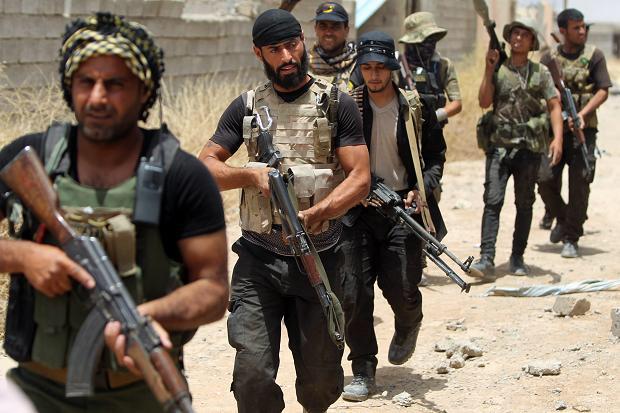

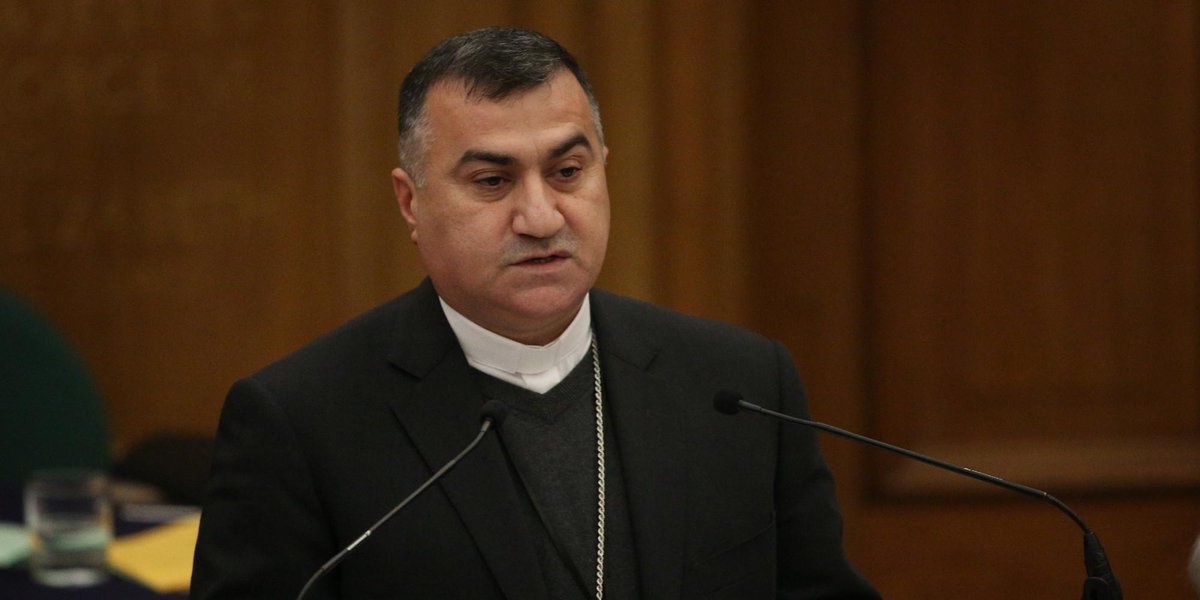
 اعلام الربيع العراقي
اعلام الربيع العراقي 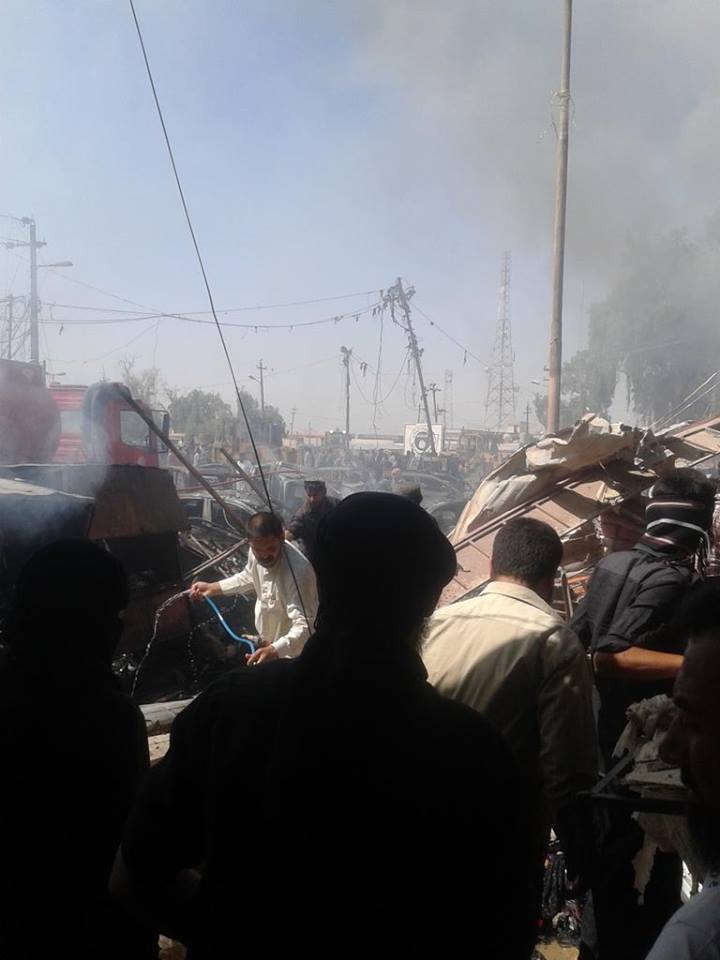
 #IRAQ شمرية العراق
#IRAQ شمرية العراق 

 The Hill
The Hill
